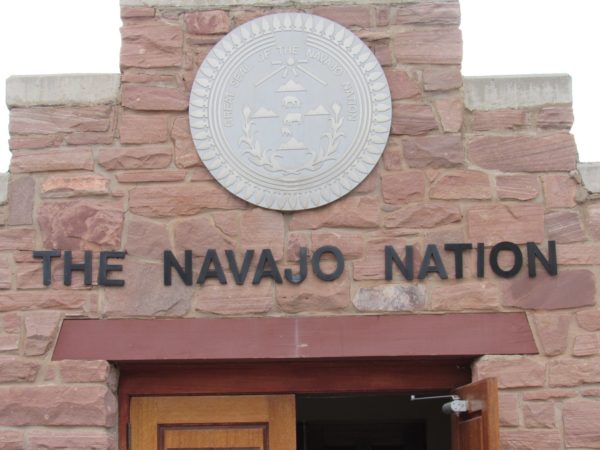
- Details
- By Native News Online Staff
WINDOW ROCK, Ariz. — Navajo President Jonathan Nez cautioned Navajo citizens to stay home. He said the last time federal government relief funds were distributed the Navajo Nation saw an increase in new Covid-19 cases.
“When the federal government issued relief funds several months ago, we saw a spike in new cases as a result of more people traveling and going into public. This time, we have to do better. We know more about Covid-19 now and we know that staying home and wearing masks works to reduce the spread of the virus,” Nez said.
The Navajo Nation Office of the Controller recently reported that the hardship assistance funds will begin to be distributed next week as well. It is everyone’s responsibility to take precautions and hold your loved ones accountable.
On Sunday, the Navajo Department of Health, in coordination with the Navajo Epidemiology Center and the Navajo Area Indian Health Service, reported 233 new Covid-19 positive cases for the Navajo Nation and two more deaths. The total number of deaths is now 871 as of Sunday. Reports indicate that 12,817 individuals have recovered from Covid-19, and 215,708 Covid-19 tests have been administered. The total number of positive Covid-19 cases is now 25,216, including four delayed reported cases.
“It appears that the recent holidays combined with the federal relief funds that people are receiving are contributing to the high numbers of daily COVID-19 cases that we are seeing,” Nez said. “Please continue to pray for our people and please stay home as much as possible, wear a mask, avoid gatherings and crowds, practice social distancing, and wash your hands often.”
Due to consistent reports of high numbers of daily Covid-19 cases, Public Health Emergency Order No. 2021-001 will take effect on Monday, Jan. 11, extending the stay-at-home order and 57-hour weekend lockdowns through Monday, Jan. 25, 2021. The order is available online at: https://www.ndoh.navajo-nsn.gov/COVID-19.
COVID-19 testing schedules are available online at the Navajo Health Command Operations Center website: https://www.google.com/url?q=https://www.ndoh.navajo-nsn.gov/COVID-19/COVID-19-Testing&source=gmail&ust=1610409640164000&usg=AFQjCNHVMNfugAes_BuG8lwQn7IK0_ePMQ">https://www.ndoh.navajo-nsn.gov/COVID-19/COVID-19-Testing. For more information, including helpful prevention tips, and resources to help stop the spread of COVID-19, visit the Navajo Department of Health's COVID-19 website: https://www.google.com/url?q=http://www.ndoh.navajo-nsn.gov/COVID-19&source=gmail&ust=1610409640164000&usg=AFQjCNH5f2GSpK2H7opBbYtqGax09xNu9Q">http://www.ndoh.navajo-nsn.gov/COVID-19. For COVID-19 related questions and information, call (928) 871-7014.
More Stories Like This
Native News Weekly (August 25, 2024): D.C. BriefsNavajo Nation Mourns the Passing of Former Vice President Rex Lee Jim
Deb Haaland Earns Endorsement From Communications Workers of America Local 7076
University Soccer Standout Leads by Example
Two Native Americans Named to Democratic Congressional Campaign Committee's“Red to Blue” Program
Help us defend tribal sovereignty.
At Native News Online, our mission is rooted in telling the stories that strengthen sovereignty and uplift Indigenous voices — not just at year’s end, but every single day.
Because of your generosity last year, we were able to keep our reporters on the ground in tribal communities, at national gatherings and in the halls of Congress — covering the issues that matter most to Indian Country: sovereignty, culture, education, health and economic opportunity.
That support sustained us through a tough year in 2025. Now, as we look to the year ahead, we need your help right now to ensure warrior journalism remains strong — reporting that defends tribal sovereignty, amplifies Native truth, and holds power accountable.
 The stakes couldn't be higher. Your support keeps Native voices heard, Native stories told and Native sovereignty defended.
The stakes couldn't be higher. Your support keeps Native voices heard, Native stories told and Native sovereignty defended.
Stand with Warrior Journalism today.
Levi Rickert (Potawatomi), Editor & Publisher

